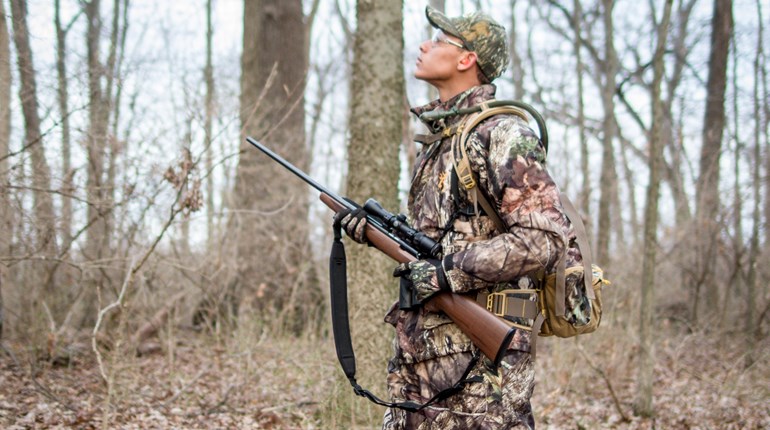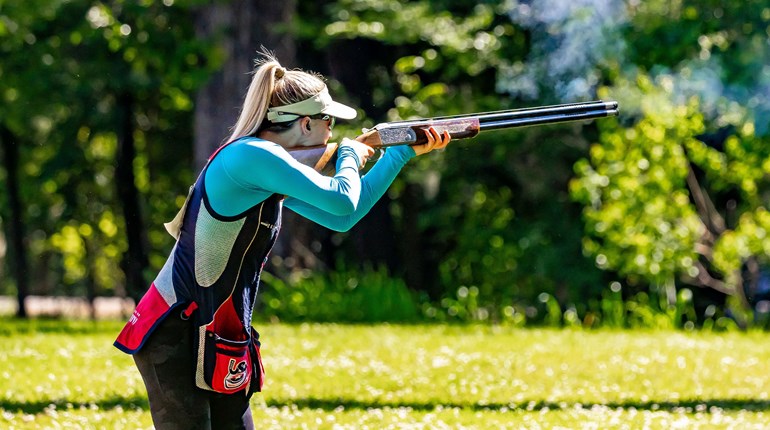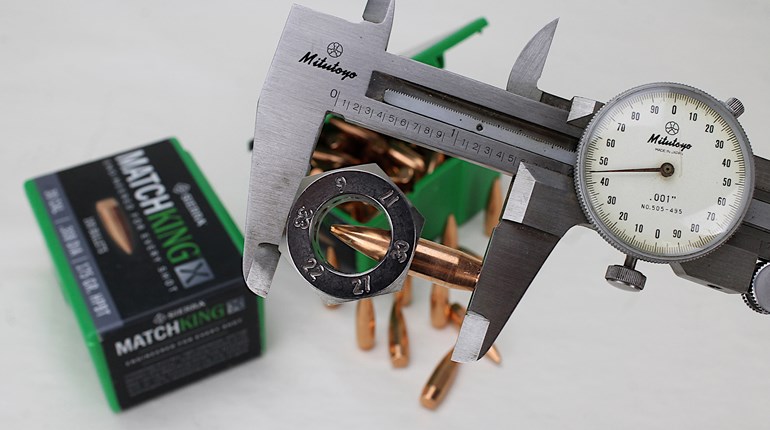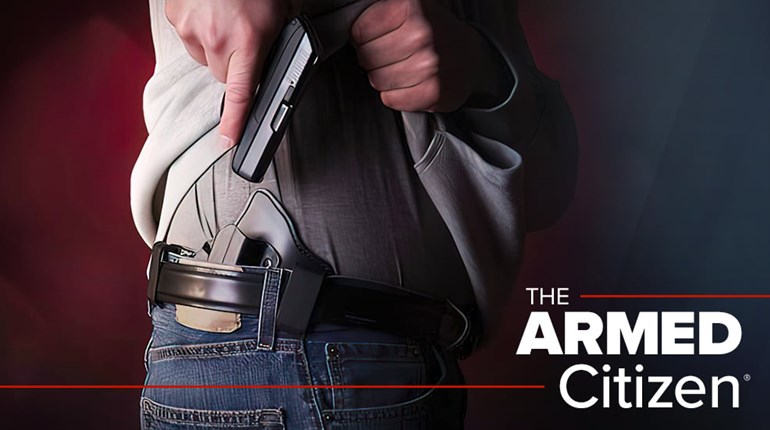
The Women’s New Energy Breakfast during the 2022 NRA Annual Meetings in Houston, Texas, was filled with women grouped at tables. Signs directed people to their areas of interest—“Second Amendment Advocacy,” “Competition” and so on. I instantly recognized Aurelia Skipwith Giacometto, who had worked as Deputy Assistant Secretary in the U.S. Department of the Interior since 2017 and was nominated in 2019 by then-President Donald Trump (R) as the 22nd Director of the U.S. Fish and Wildlife Service (USFWS). She served in that role only one year, but I remembered her signing a memorandum of agreement between the USFWS and the NRA to advance hunting and shooting safety goals.
When it came time for the topics to be presented at the breakfast, Skipwith Giacometto stood in her high heels and business attire—an outfit complete with an alligator-leather purse—and provided a compelling case on both the joys of hunting and the ways that hunting influences conservation and our culture overall.
Skipwith Giacometto’s appointment at the USFWS ended as the Biden administration began, and she had moved into a CEO role for the International Order of T. Roosevelt (IOTR), a conservation organization. Unfortunately, after our interview, her husband, Leo, passed away unexpectedly, and she put her career on hold. With her permission, we are publishing this interview, as she had many important things to say about real conservation and the importance of our Second Amendment freedom.
 A1F: Do you feel you had enough time to effect change during your tenure as the director of the USFWS? What are you most proud of accomplishing?
A1F: Do you feel you had enough time to effect change during your tenure as the director of the USFWS? What are you most proud of accomplishing?
ASG: When I went into office in April 2017, I had already established relationships with a lot of conservation organizations and had worked with elected officials to effect change that dealt with wildlife. I’m most proud of the fact that the Trump administration was focused on delivering for the American people; in particular, being able to open more than four million acres to hunting and fishing was truly an accomplishment. Being able to keep the lands open during COVID was particularly important; “social distancing” was happening on public lands way before, but we saw that there was an increase of 30-100% in visits to public lands.
What was also really important were the relationships we were building with private landowners to keep working lands working. For over 60% of species that are endangered or threatened, their habitat is on private lands. Building relationships with private landowners, with state agencies and with nonprofits is critical to get species off the Endangered Species Act’s lists, because each ecosystem is different. The USFWS has 8,500 employees, but the service is responsible for over 850 million land and water acres. You have to talk to and work with all interested parties to come to the best solutions for people and the environment.
A1F: Do you feel that you helped to foster a shift in attitude when it came to working with private landowners or increasing public access?
ASG: So, in the prior years, in the administration prior to Trump, you didn’t see those types of numbers for lands that were opened for hunting and fishing. It truly was an intentional shift to have more accessibility for the American people. When it comes to private landowners, I also heard from them that it was a shift and that they appreciated that they were invited to the table to have these conversations on what works. An approach of having incentives is a lot better than having a stick. And regulations sometimes are that stick.
A1F: Your lifelong passion seems to be all about conservation, preserving species and helping others discover a love of the outdoors. You were also clearly well-qualified for the USFWS director position, as a biologist, businesswoman and attorney, and you have a serious passion for the outdoors. Nonetheless, there were several “hit pieces” written about you during the nomination process that accused you of being against environmental protections. Can you help us understand that disconnect?
ASG: It was eye-opening for me. It wasn’t until I got into the administration that I started seeing all the lawsuits that happened and where the money was going. So, there are grant programs and there’s money in the budget. You see that if a species gets on the endangered-species list, it’s there for decades, it costs millions of dollars, resources and time from many different groups working to get it off the list. And then you have groups that sue on behalf of the animal, but you don’t see them applying for grants. You don’t see the money going back into the field for that species that they sued on behalf of. And so, it became eye-opening that they’re not doing it on behalf of the species; it’s a fundraising campaign. And that was disappointing, but you can then understand why there would be an attack because you’re starting to impact their fundraising campaign.

A1F: How do you decide which species to focus on, given that there are so many on the endangered list?
ASG: That’s a great question. That’s where it’s helpful for organizations to come and help, because the federal government and state agencies can’t possibly do it on their own. So that’s why there are groups like IOTR, to help on those critical species. We actually want to do preventive work, so our goal is to get to the species before it’s on the list.
A1F: Please tell our readers about how you developed such a love of the outdoors.
ASG: So I’m a city girl, born and raised in Indianapolis, Ind., so I’m Midwestern, but my parents were both born and raised in rural Mississippi. We would spend our summers and our holidays down in Mississippi with the aunts, the uncles, the cousins—because that’s where the family was. My grandfather had a hog farm; he had a huge garden and he bred hound dogs. So, you would always find me hanging out with my grandfather, and he hunted everything that there was: squirrels, raccoons, deer, you name it. And one of my uncles took the family on what were my first fishing trips. I’ll never forget, I think I was like 5 years old, and we had been fishing all day; at the end of the day, he was like, “Aurelia, you caught the biggest fish!” And I said, “Uncle Joe, I’m the only one who caught a fish.”
But it’s memories like that—and I just liked being outdoors. And that’s also why I love to run, because it gets me out of buildings and enclosed spaces. Nothing can ever replace that. That’s why I ended up getting my bachelor’s in biology and then I enjoyed research that I did during my undergrad, so that’s why I ended up getting my master’s in molecular genetics, but it was in the animal sciences division at Purdue University.
A1F: Do you have a favorite thing you like to hunt?
ASG: I just showed you my purse for my alligator—I’m looking forward to getting some matching shoes one of these days. Yes, everyone talks about boots, but I want some power pumps! But my favorite was a feral hog hunt in Texas. There’s absolutely nothing like it. We were in this Jeep, and I didn’t see what the guide was looking at, but then there’s just a sea of like 50 to 60 hogs—get the gun out!
These hogs are detrimental to the ecosystems, to the ranchers. It’s not sustainable; the hogs’ numbers are often too high. So, hunting is a tool that’s part of conservation. Seeing it in that light is also why it’s really important to understand that if we don’t have our Second Amendment rights, then we’d lose an important conservation tool along with our freedom.
And, also, there is the excise tax that’s on guns and ammunition, which is imperative for conservation, because it usually makes up around 50% of state agencies’ budgets.
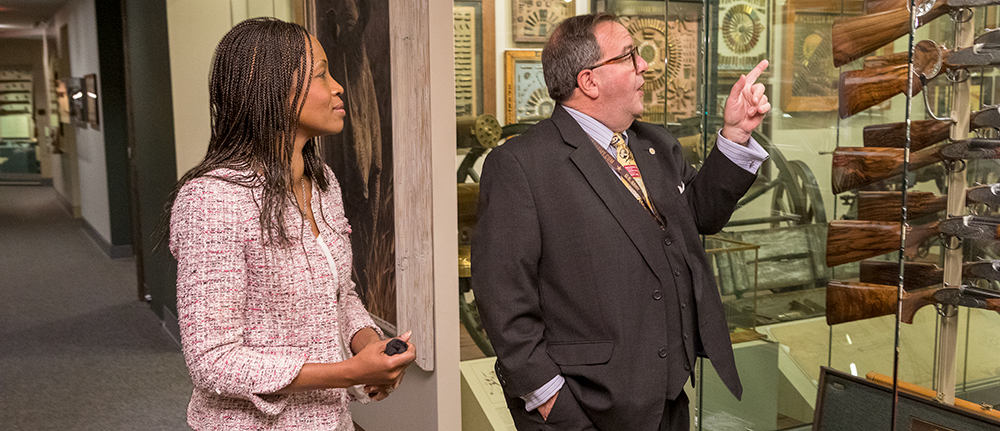
A1F: Do you think sharing a passion for the outdoors matters politically? And what ways do you share that passion with others?
ASG: I love conservation because it’s something that goes across the political boundaries. And, today, there’s a huge focus on the environment. Everyone’s looking at climate change; they’re looking at how we leave a legacy into the future for our wildlife and our lands. And that’s on both sides of the aisle. So, conservation is a topic that transcends political boundaries.
With that said, it’s important to be able to have all of our tools in our toolkit. We need to support ways to be able to fund conservation. Plus the health benefits of people being outdoors.
Gun owners need to know that without them, it would not be possible to hunt, to shoot.
I want to be able to continue to parlay that into, yes, ways to get more people outdoors. There’s a lot of thought that if you leave it all untouched, then it’s fine, but really you have to manage it. That was something that was key under President Trump and under the Department of the Interior, being able to manage the timber, manage the underbrush, because we saw these catastrophic fires that were happening. I don’t want conservation to be such a partisan issue, but using the science to make these decisions is key. And at points, I’ve seen that it hasn’t happened.
A1F: Can you give us an example of an area where you think a scientific approach still needs to be applied?
ASG: So, in the decision-making process for a species being listed or not, we would forecast out what is the climate and weather, and some of the data would go out to the year 2100, while the models themselves are not reliable more than 30 years. So, people are making decisions looking at data based on what’s happening out to the year 2100 when the science that you have stops at 30 years.
A1F: Just before the end of your tenure as director, you signed an official memorandum of agreement between the NRA and the USFWS. Please tell us about what you were trying to accomplish with that agreement.
ASG: I am very grateful to the NRA for their work and for their support for me becoming director of the USFWS. You guys were on the forefront both times when I was nominated. So, thank you to Wayne [LaPierre] and all the members for making that happen.
The NRA has been around for over a century. And you have been at the forefront of creating programs that educate people, educate new gun owners, educate youth, when it comes to safety and hunting. And the Department of the Interior, the USFWS, we were focused on improving access for hunting and fishing. And so if our goal is providing opportunities, let’s make sure that we’re also finding ways to equip people to be good stewards for our environment. So, if there’s already a program in place, let’s not spend time, wasting energy and resources, reinventing the wheel. Why not go to the leaders of that area and industry and partner with them to make it possible so that we can fulfill our mission of increasing access and improving the number of hunters; you all are already equipped to do it.
And so that was the purpose in signing this memorandum of agreement between the NRA and the USFWS. And I’ll say that there was a strong campaign as soon as that happened to have that rescinded, and it’s unfortunate, given that our goals were focused
on providing services for the American people—especially for our youth, as that’s our legacy.
 A1F: What about other things you’ve done with the NRA, if any?
A1F: What about other things you’ve done with the NRA, if any?
ASG: Recently, I was speaking at different grassroots events for the Institute for Legislative Action. And I think that was probably a little bit of a surprise for some, because how does conservation tie to the Second Amendment? Gun owners need to know that without them, it would not be possible to hunt, to shoot. We’re seeing numbers of shooters going up and we’re still working on getting the numbers of hunters to go up. Folks need to realize that what they’re doing has a greater impact beyond what they probably think, and it’s nice to be able to thank them and to show them appreciation for the role that they’re playing in conservation. Because the guns that they buy, the ammunition that they buy, causes money to go back into these state agencies [via the Pittman-Robertson Act]. Gun owners’ dollars are used to take care of huntable animals, as well as the non-huntable species.
A1F: You’ve said you’re looking forward to when race isn’t an issue that we even need to mention, but it bears noting that you were the first black woman to hold the position of director with the USFWS, and I think you are representative of a positive change as more people embrace their Second Amendment rights.
ASG: For me, growing up, that was just part of the family. When I was at the USFWS, we always said, we have to reach these “non-traditional groups.” When I was out in the field, I met many groups that were minority groups. So black, but also Hispanics; they were out there hunting and fishing. There’s a gap—I don’t see them at the table or participating, but in the field, I did see them. There is a disconnect between us engaging with the groups that are already doing it. They’re doing it on the local level, at the regional level. And so my point was, we have to go to these groups because they’re doing it. And if we’re trying to get up the numbers of folks who are hunting and fishing, then we need to build those partnerships with them because they are very effective in their communities. It takes time, like building any kind of relationship. There are increasing numbers of black gun owners, particularly female, and that’s on the side of protection, but let’s also work together for good conservation.













